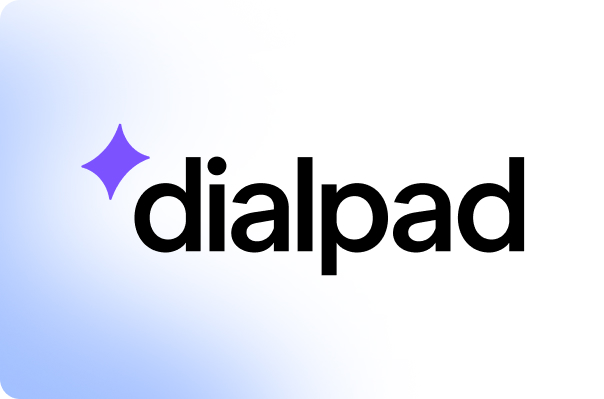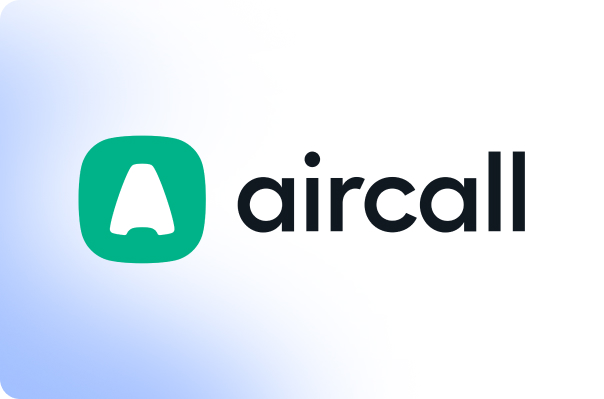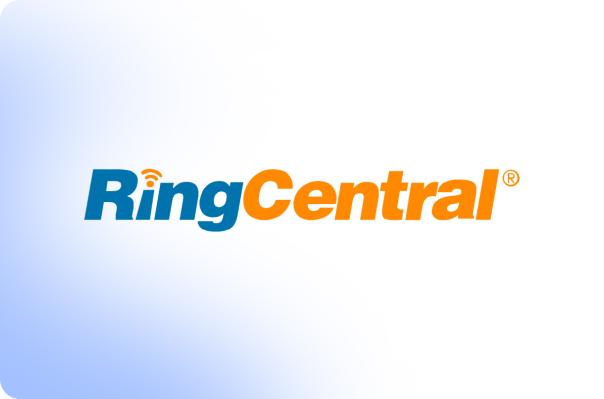
Cloud Telephony Platforms are the latest buzz in the realm of Business Communication. As per the Global Industry Analysts study, the global cloud telephony services market size was $13.5 billion in 2020 and is expected to reach $34.5 billion by the end of 2026, growing at a CAGR of 16.8%.
Cloud technology not only promises big things like cost-efficiency, reliability, and security but also brings exciting opportunities for businesses, such as more productivity, mobility, and flexibility. At first, switching your phone systems to the cloud might look a little daunting, but if you have the right service provider, it is much easier than you think.
If you are also considering moving to the cloud for your telephony, then this is your go-to guide. Our team has handpicked these 9 cloud telephony platforms that are not mere pieces of marketing promises but deliver real results. Let’s walk you through the best cloud telephony platforms of 2026, along with some solid tips for making the right choice.
Here we go!
What are Cloud Telephony Platforms?
The basic purpose and working of cloud telephony platforms remain the same as that of traditional phone lines, i.e., to make and receive calls for business purposes. But the key difference between the two is that cloud telephony solutions are hosted by third-party service providers. This means that all the communication infrastructure required to support the working of cloud telephony remains with the service provider. As a business, one only needs to subscribe to this service, which lessens the investment cost as well. Further, all the responsibilities associated with the maintenance of the cloud telephony solution are with the service provider.
In simple words, we can say that using cloud telephony platforms, you can manage your entire business phone system directly through the internet – no tangled wires, no bulky hardware.
Let’s understand this through a real-life example.
Suppose you are running a small customer support team across different time zones. By implementing a cloud telephony platform, you can:
- Set up routing so that calls are directed to the right agents based on predefined parameters like language, region, issue, etc.
- Set up an IVR menu to guide callers quickly and reduce frustration.
- Keep track of missed business calls and instantly alert agents to follow up.
- Analyze real-time call reports to identify which campaigns are driving the most calls.
Now that we have understood the concept of cloud telephony, let’s move ahead and learn about some of the best cloud telephony platform providers.
Top 10 Cloud Telephony Platforms for 2026
With numerous providers in the cloud telephony space, there’s no shortage of platforms out there. However, not all are created equal. So, how do you know if there’s a solution designed for your specific business needs? While each of these platforms brings something unique to the table, let’s take a closer look and learn more about the top 9 cloud telephony platforms that cater to different team sizes, business goals, and industries.
1. REVE Cloud Telephony
A complete solution for enterprise communication that stands out as a powerhouse. REVE Cloud Telephony brings together the functionality of AI-driven automation, full customization, and carrier-grade reliability – all in one, easy-to-use platform.

Noteworthy Features
- Available as a cloud-based or on-premise deployment
- White-labeling and branding flexibility
- Built-in AI voice bots, chatbots, and smart IVR
- Supports toll-free, vanity, and DID numbers
- Fully Integrated Ticket Management System
- Supports iOS, Android, web, Huawei, PSTN, and IP phones
- Enterprise-Grade security & centralized Management
- Unified dashboard for complete oversight
- Advanced routing and call termination flexibility
2. DialPad
Another AI-powered cloud communication platform that offers the flexibility to support remote teams. Dialpad offers multiple routing tools, including multi-level IVR, custom call routing, ring groups, and call queues.

Noteworthy Features
- Creates highly accurate call transcriptions
- Generates automatic post-call notes
- Instant video meeting summaries
- Local and global numbers in 70+ countries
- Provides chat rooms accessible on the desktop and mobile app
3. Grasshopper
The ultimate choice for small businesses and solopreneurs looking for a simple, pocket-friendly, and personal communication solution. Without investing in those complex traditional phone systems, startups can leverage the benefits of modern cloud telephony.

Noteworthy Features
- Unlimited texting and calling in the US
- Automatic text responses for missed calls
- An easy-to-use cloud telephony solution
- Virtual phone numbers, call forwarding
4. Aircall
Another advanced calling solution that comes with a robust set of features and is particularly useful for businesses looking for a seamless and integrated experience for sales and support teams.

Noteworthy Features
- Easy-to-use calling tools and automation
- Smart call routing and IVR
- Real-time analytics and performance insights
- Seamless CRM and helpdesk integrations.
5. 8X8
A well-established cloud telephony and UCaaS system provider that offers unlimited calling, local and toll-free numbers, call recording, and various other powerful features.

Noteworthy Features
- Video meetings support 500 users
- Analytics for channel usage, call activity, and live queue status
- Built-in call monitoring
- Unlimited calling to 48 countries
- Multi-level auto attendant, call queues
6. Vonage
The list of best cloud telephony systems would be incomplete without Vonage. It’s a well-established service provider in the cloud telephony market, with a broad portfolio of communication solutions, including VBC, VCC, and the Vonage API platform.

Noteworthy Features
- Business Inbox feature that allows multiple users to share an omnichannel inbox
- A highly scalable cloud phone solution
- Live call controls like transfer, call parking, call hold, and call flipping
- Video conferencing with 200 participants
- Over 50 standard phone features
7. Zoom Phone
A popular cloud telephony platform that integrates with Zoom meetings and other Zoom products. It’s an excellent option for businesses that have already invested in the Zoom ecosystem.

Noteworthy Features
- Seamless transition between calls and video meetings
- Enterprise-class reliability
- Compatible with SIP-based desk phones
- Native integrations with Salesforce, Slack, and Microsoft Teams
8. RingCentral
It has been in the market for almost 2 decades and is a popular choice due to its cost-effectiveness, seamless integrations, good customer support, and reliable services. Typically, RingCentral caters to large teams and enterprises requiring a comprehensive communication and collaboration platform.

Noteworthy Features
- All-in-one communication – messaging, video, phone, and fax
- Secure cloud-based access from any device
- Intelligent call handling and IVR
- Integrated tools like file sharing and task management
- Real-time analytics and performance dashboards.
9. Nextiva
A prominent name in the cloud telephony industry, Nextiva offers a range of services including VoIP phone systems and Unified Communications.

Noteworthy Features
- Boasts high uptime (99.999%) and good call quality
- Both basic telephony and advanced contact center need
- User-friendly interface and straightforward setup
- Offers integrations with popular CRM and business applications.
Why Businesses are Switching to Cloud Telephony Platforms?
Running a business means one has to work in a dynamic environment, keeping in mind a lot of things. We already know that businesses save money by opting for cloud services, especially startups have a lot of advantages as they are usually in a crunch for cash. Besides saving money, cloud telephony platforms help businesses in dealing with a lot of other important challenges, as mentioned below.
Managing Call Routing
 Businesses receive calls daily—some days are busier than others.. But no matter what the traffic is, it is important that every call should go to the right agent as per the concern of caller. Suppose a caller is looking forward to knowing about the delivery of his order. So he needs to talk with an agent from the Order Delivery department. But what if the caller gets to speak with someone from the Finance department? It will result in a lot of time wastage and frustration.
Businesses receive calls daily—some days are busier than others.. But no matter what the traffic is, it is important that every call should go to the right agent as per the concern of caller. Suppose a caller is looking forward to knowing about the delivery of his order. So he needs to talk with an agent from the Order Delivery department. But what if the caller gets to speak with someone from the Finance department? It will result in a lot of time wastage and frustration.
Here, Call Routing emerges as an important feature of cloud telephony platforms. Basically, Call Routing is an advanced phone function that works on a predefined call flow and directs calls to agents based on the option selected by the caller. So, without any wastage of time and error, it connects the caller with the right agent.
Listening to Calls
With the Call Recording feature of Cloud Telephony Platforms, business owners, managers, and supervisors have the opportunity to record agent-customer interactions over calls. It is a great way to assess the performance of the agents and keep a check on the quality of service. Seniors can use these recordings to give tips and ideas to agents for better performance and handling of customer calls.
Automating Call Flow
In a typical business scenario, a human receptionist picks up the call and listens to the queries of the callers. But when we talk about, say, 200-300 calls a day, how can a receptionist take all the calls, greet every caller, listen to them, and transfer their call to the appropriate departments? Quite impractical, right? So, by going with cloud telephony platforms, first of all, the need to have a human receptionist simply gets eliminated. The IVR or Interactive Voice Response System does it all. It greets the caller, presents them with a menu with multiple options, and transfers their call to a suitable agent using intelligent call routing, as we mentioned earlier in this post.
Distributed Workforce Management
The best part of using Cloud Technology is that one can access it anywhere, anytime, and from any internet-enabled device. So for today’s call center workforce, which is often dispersed and prefers remote working, Cloud Phone Systems just work wonders. Since there is no hardware installation required, workers can connect with callers from their comfort. Also, for businesses, it becomes quite easy to manage the workforce by having centralized access to the cloud system.
Set the Seal on Business Continuity

As per the stats, 84% of businesses store backups in the cloud, and 93% of small enterprises have adopted the cloud. The world is moving faster than ever before. A business simply cannot afford downtime, even for a few minutes, as this can make them lose lucrative business opportunities to competitors. But unexpected disasters can sink a business. With Cloud Telephony Platforms, it becomes easy to recover from disaster situations and other unforeseen events. Backed up with redundant servers, these systems ensure that data is always available and never lost.
Review Business Calls
Assessment is a crucial part of every business. Hiring a team to do this job can be very exhausting for a business. Having advanced analytical tools that can generate useful insights in the form of reports helps in making wise business decisions. Cloud Telephony Platform can automatically generate Call Reports, thus replacing the manual work and automating the workflow.
Making Wait Time Easy for Callers

Do you know that “60% of customers think that one minute is too long to be on hold from contact center agents?” The word ‘hold’ is frustrating for each and every one. But during peak hours, callers may have to wait to get connected with an agent. Cloud telephony platforms ensure that callers are not bored with the monotonous dial tone or simply no audio. Rather, the IVR, i.e., Interactive Voice Response, can play any preset music so that callers remain engaged.
How to Choose the Right Platform? Expert Tips
When considering selecting the right cloud telephony platform, it’s not just the features that need to be evaluated, there are several other points to look for:
Define Your Range and Scale of Operations
First, ask yourself: What type of cloud telephony platform do you need? This depends upon the size of your business. If you are a solopreneur, then a simple virtual phone system might appear as a good option. However, if you are a growing startup or an emerging enterprise, then you might prefer having an advanced platform with modern collaboration and analytics features.
Explore Integration Capabilities
Make sure you look for a solution that complements your existing range of tools like CRMs, helpdesks, and other collaboration apps. Integrating your cloud telephony system with other business tools will help you in tracking calls, logging contacts, and triggering automations seamlessly.
Multi-Channel Support Options
While phone calls might be the primary source of lead generation, other communication channels should not be ignored. Therefore, look for a cloud telephony platform that offers omnichannel communication, including text, WhatsApp, and email.
Adopt a Wise Investment Approach
Lower-priced products are attractive, however, it is wise to think long term. Evaluate the features and services you are getting for the price you are paying. Remember that a business that budgets wisely is more likely to benefit in the long run.
Conclusion
The business world runs at a very fast pace and works in a hybrid manner. Legacy systems simply can’t keep up in such an environment, which is why businesses around the world are making the shift to cloud telephony platforms. These systems are not only smart and scalable but also flexible to manage.
Take your time to research, compare, and finalize a product that aligns and grows with your business. If you need our assistance or want to see our cloud telephony platform in action, we are just a form away!
Frequently Asked Questions
Do I need any special hardware to use cloud telephony services?
Not at all. You don’t need to invest in expensive telecom hardware – all you need is:
- A strong and reliable internet connection
- A computer or smartphone connected to the internet
- A headset – this is optional and as per need
How scalable are cloud telephony systems for growing teams?
Cloud telephony platforms are built to be scalable. It doesn’t matter whether you start from a 10-person team or expand to a 10,000-agent call center; you can easily adjust your users according to your requirements.
Can I route calls to different agents or departments automatically?
When setting up IVR on your cloud telephony platform, you can set the IVR menu by adding different options that direct to different agents or departments. For example, the IVR provides the caller with a menu like this – Press 1 to speak with a sales agent, Press 2 to speak with a support agent….and so on . When the caller presses any button, say 1, the call automatically directs to the sales agent.
Are there any limitations to cloud telephony that I should be aware of?
The biggest limitation of cloud telephony platforms is their dependence on a stable internet for smooth working. Another limitation is that teams who are used to legacy telephone systems might find it difficult to learn to use cloud platforms, causing a little delay during onboarding
Can cloud telephony platforms be used by remote or distributed teams?
Of course, cloud telephony platforms are an ideal communication and collaboration solution for remote and distributed teams. This is because from the comfort of their place, agents and take and make calls, use messaging and conferencing features.






















